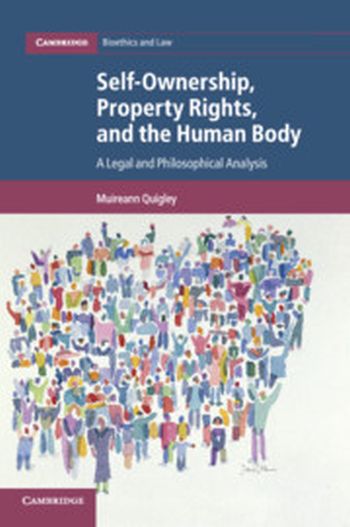
How ought the law to deal with novel challenges regarding the use and control of human biomaterials? As it stands the law is ill-equipped to deal with these. Quigley argues that advancing biotechnology means that the law must confront and move boundaries which it has constructed; in particular, those which delineate property from non-property in relation to biomaterials. Drawing together often disparate strands of property discourse, she offers a philosophical and legal re-analysis of the law in relation to property in the body and biomaterials. She advances a new defence, underpinned by self-ownership, of the position that persons ought to be seen as the prima facie holders of property rights in their separated biomaterials. This book will appeal to those interested in medical and property law, philosophy, bioethics, and health policy amongst others.